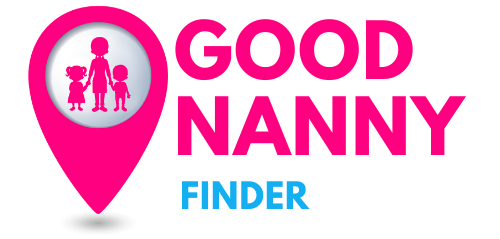Amazing Tips for a Better Relationship with your Nanny
Your relationship with your nanny is first and foremost employer-employee. You’ve hired someone. You’re the boss.
However, a parent-nanny relationship can be more complicated and difficult than the ones you have at your work with your own supervisor or those that you manage. The nanny relationship is more personal because they work out of your home and they’re caring for your most beloved relations – your children.
You may also feel inadequate or guilty for leaving your child with a caregiver or are struggling with the stress of balancing a career and parenthood. While these are normal feelings to have, they can interfere with the relationship you have with your nanny. It’s also normal for parents and their nanny to grow close over time due to the personal nature of the work. They may even feel like part of the family. Communicating with your nanny may become difficult if the professional foundation of the job starts to blur with personal feelings.
While communicating with your nanny borrows some of the same ideas as interacting with co-workers, there are some nuances. Here are seven tips for a better relationship with your nanny that leaves everyone on the same page and five actions to avoid.
7 Tips Tips for a Better Relationship with your Nanny
1. Establish Clear Expectations …Before Day One
Throughout the process of hiring a nanny, especially as you get closer to deciding on a candidate, you should be clear about the job responsibilities and expectations. Be open and honest and expect the same from your potential hire. Once you’ve selected your nanny, their duties and obligations should be plainly stated in a household employee work agreement, which is then reviewed and signed by both parties.
Beyond the work agreement, you may want to leave your nanny a list of tasks or “to dos” for the day. That way you and your nanny are on the same page on what needs to be done, which will minimize your disappointment if something doesn’t get done but was left unsaid. It can be as simple as jotting down that your child may enjoy storytime at the library that day and provide the time and address of the event. If you decide to use a daily task list, make sure you leave it in the same place every morning and your nanny knows where to find it.
2. Layout Your House Rules
Your house rules may go beyond what you put into a work agreement but may be helpful to have written down. This could be limits on screen time, nutrition choices, what TV shows or movies are appropriate, when and how many friends can come over, permissible activities, and more. This will help reduce misunderstandings.
3. Tackle Problems Early
Take on any issues as soon as they arise. This way you can spend more time finding a solution and there is less time for tension to build. You may need to let any strong emotions pass before engaging in a calm, productive discussion. Also, in a parent-nanny relationship, it takes time to really get to know each one another. You won’t be able to read each other’s minds (right away at least) so it’s better to get any issues resolved early on and enjoy a strong relationship as your nanny becomes more comfortable with you and your children.
4. Set a Routine for Daily and Weekly Recaps
Getting home from work can be a hectic time. The kids are happy to see you and you need to get dinner on the table. Your nanny may be ready to head home after a day of work. In this case, the daily recap can be a written – and not necessarily a verbal – synopsis of their day. What they did, what went well, what didn’t, what to be on the lookout for, and anything else that may be important. Obviously, serious concerns should be discussed right away.
Then set aside 10-15 minutes once a week to have a sit-down talk about the week. Maybe your nanny stays late one day (make sure she’s paid) or you come home early. This will be a time to discuss any bigger picture situations perhaps about potty training or language development or what the kids are eating. Safety issues and major concerns need to be addressed immediately but a weekly chat will keep everyone on the same page.
5. Listen as Much as You Talk
That 15-minute weekly recap is also a great time to listen to your nanny talk about your children, ask questions, and bring up any issues they may have. Communication is a two-way street, so it’s important to let your nanny express herself as well. Be empathetic and open-minded, see things from her perspective, and work to find solutions together. Remember she spends a lot of time with your children and may have some insights or notice things you may have overlooked.
Nannies aren’t perfect, but neither are parents. You may not know it all and can learn something from your nanny. That only happens if you listen.
6. Have a Purpose for Every Conversation
If you need to talk to your nanny about nap time, or how your kids are dressed when they play outside or whatever else is concerning you. Know what you want the outcome to be from that conversation. Is it a better understanding of why your two-year-old missed a nap? Or is it to make sure your nanny knows that your kids shouldn’t be outside without hats and gloves if the temperature is below 40 degrees?
The outcome should be a joint plan of action and not directed at the person. For example, “why do you have the kids outside without hats and gloves” is confrontational and will make your nanny defensive. A better approach would be “when it gets below 40 degrees let’s make sure the kids are dressed warmly with hats and gloves.” It may seem passive aggressive but you’re offering a plan that your nanny will more than likely agree to and she’ll feel like she’s part of the solution.
Try to focus on one topic per conversation – and repeat your agreed upon conclusion – before moving on to something else. And avoid piling on the criticism. If your nanny made a mistake, you have a better chance of that slip up not happening again if you focus on what went wrong and what should have been done in that situation.
7. Pick Your Battles
No one likes to be nagged including your nanny. If you’re on her for every little thing she may be doing wrong, you’ll drive her away. And she may not be doing anything wrong. It could just be a different way to care for children. Your nanny may have lots of experience with other families and developed a child care style of her own, which should be discussed during the hiring process. Her methods should mesh with your approach, so care is seamless between nanny and parent.
However, if your nanny is doing something that may seem trivial but is bothering you, approach it in a positive way. You may have a way you like your children’s laundry folded. Explain that to your nanny. To be honest, your nanny probably doesn’t care how she folds the laundry. The key is not to make it seem like she was doing it wrong.
5 Actions to Avoid with Your Nanny
1. Don’t Complain about Your Nanny Online
It’s one thing to ask a friend or close colleague for advice on communicating with your nanny especially if they’re household employers themselves. You could get some constructive feedback that will help your situation. Disparaging your nanny in message boards or on social media doesn’t help anyone and won’t solve your problem. It likely will make matters worse as it’ll fuel whatever anger you have toward your employee.
2. Don’t Expect Money to Solve Your Problems
To avoid a confrontation, it may seem tempting to throw a gift or some extra cash your nanny’s way in the form of a bigger bonus or raise. You’re not solving any issues. A gift or a bonus should be presented as an expression of gratitude or a reward for a job well done and needs to be communicated in that way. Be specific in why your nanny has earned the bonus or raise. Money used to assuage your guilt or avoid a confrontation simply won’t work.
3. Don’t Overshare
While not communicating enough is an issue for some parents and their nannies, going in the opposite direction and oversharing can be as big of a concern. A nanny may become more like a friend than an employee so it can be easy to talk about marital problems, gossip about other parents, or complain about difficulties at work. That’s putting your nanny in an awkward position. Some situations may impact her job and those can be shared. For example, you just told your children you’re getting a divorce or you’re changing jobs to one that requires more time away from home. If it doesn’t affect your nanny, better to leave it unsaid.
4. Don’t Only Talk When Something is Wrong
If the only time you talk to your nanny is to point out when she did something wrong or failed to do a task, you won’t have a happy employee or one who will work for you much longer. Find time to praise your nanny for the things she’s doing right or thank her for doing something helpful or unexpected. That will go a long way to keeping your nanny committed to her job, which, remember, is caring for your most precious gift.
5. Don’t Air Disagreements in Front of Your Children
When your children are around, you should only treat your nanny with kindness and respect. Your kids take cues from you on how to regard others. If they see you belittle or insult your nanny in front of them, they may see that as appropriate behavior and mimic that conduct. Any serious discussions should be respectful and done in private away from your children.
Your kids are constantly changing. That’s the nature of growing up. With so much change going on, open communication provides an opportunity to get on the same page with your nanny and understand each other’s point of view. She’s a valuable member of your team and contributes to the health and happiness of your child.
At Good Nanny Finder, we take safety very seriously. We do complete nanny background checks. All candidates go through our extensive nanny screening services. Very few of the applicants who apply are accepted due to our stringent requirements.
We are committed to happiness at home. Therefore, we offer excellent, tailor-made reliable Nanny Services. Our nannies are available everywhere in Switzerland, including: Zurich, Basel, Bern, Zug, Geneva, Lausanne, and all the other cities.
Find out more and book your nanny now!





